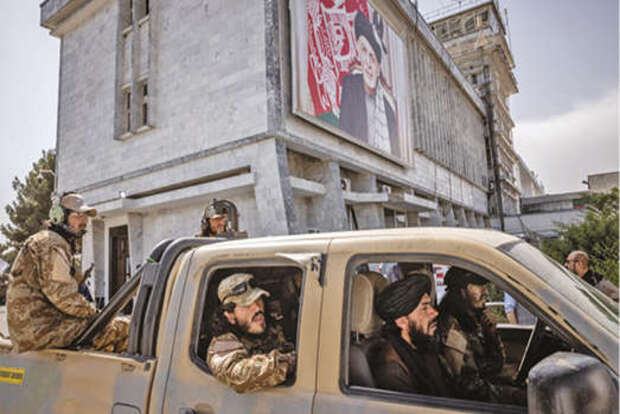Begin typing your search...
Seeking clues to how the Taliban will govern
The Taliban are, depending on how one counts, something like the sixth or seventh rebel group to take over a country in the modern era. And while no two are exactly alike, certain patterns have emerged in how rebels rule.

New York
As Taliban commanders exchange their guns for the reins of power, some 38 million Afghans can do little but hold their breath and wait to see how their latest conquerors will rule.
That uncertainty, also palpable in foreign capitals from Washington to Beijing, is compounded by the deep contradiction between the group’s record of extremism and brutality during its prior reign, from 1996 to 2001, and its promises of moderation today. History may offer a few clues.
The Taliban are, depending on how one counts, something like the sixth or seventh rebel group to take over a country in the modern era. And while no two are exactly alike, certain patterns have emerged in how rebels rule.
Some learn to govern effectively, even to modernize, while others collapse in chaos or renewed war. Some grow crueler in power, lashing out at their subjects in fear and insecurity. Others moderate, though mostly in search of legitimacy and foreign aid. But all seem to share a few traits: A tightly bureaucratic authoritarianism, albeit sometimes allowing a degree of political opening.
A focus on controlling or coercing elements of society is seen as tied to the old order, sometimes through staggering violence. And a quest for foreign support and recognition as they strain to overcome the pariah status that tends to greet militants who shoot their way into power.
Those habits have a common purpose: consolidating authority. It is almost always the paramount concern for rebel rulers, who tend to understand that seizing a government building is not the same as becoming a government.
That years-long process, the civil war scholar Terrence Lyons has written, is shaped as much by the victors’ need for “postwar legitimacy and power consolidation” as it is by “the nature of victorious insurgent groups”: hardened, disciplined and ideological.
Insurgents who seize power tend to quickly convert themselves into a very specific kind of government: party-based authoritarianism.
Think of China’s Communist Party, a one-time rebellion that took power in 1949. They are tightly unified, with rigid internal hierarchies and a practiced hand at bureaucratic organizing but little tolerance for dissent.
Rebels choose this model for the simple reason that it’s how they’re already organized. “A successful rebel group is simultaneously a political party, a military organization, and a business,” Dr. Lyons wrote in a study on how rebels govern.
In power, the discipline and cohesion of rebel groups often make their governments more stable and pragmatic than other types of authoritarianism, perhaps even longer-lived.
They tend to express “ambivalence, if not hostility, toward democracy,” Dr. Lyons found, even as they claim to represent popular liberation. And their experience in the zero-sum contests of war can lead them to see peacetime competition — elections, protests, dissent — as a threat.
After taking power over China, Mao Zedong invited intellectuals, journalists, and others to critique the new government. But, apparently taken aback, he jailed or killed many who had taken up his offer. Still, while rebel governments’ capacity for violence can be vast, years of hiding out in villages and mountain passes leave them keenly aware of the value of cultivating popular support.
Many continue this practice in power, especially those who represent a particular ethnic or religious group, like the Taliban, and may wish to put the others at ease. But make no mistake: insurgents, as a rule, cling to the office with an authoritarian’s iron grip, guarded and perhaps paranoid about losing the power they fought so hard to win.
Rebel governments tend to organize much of their early rule around fears of being rejected by the public, undermined by holdovers from the previous government, even confronted by a rebellion of their own. Internationally reviled and facing a potentially devastating economic crisis, the Taliban’s need maybe even greater.
Fisher is a columnist with NYT©2021
The New York Times
Visit news.dtnext.in to explore our interactive epaper!
Download the DT Next app for more exciting features!
Click here for iOS
Click here for Android
Next Story



